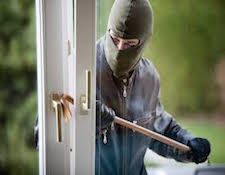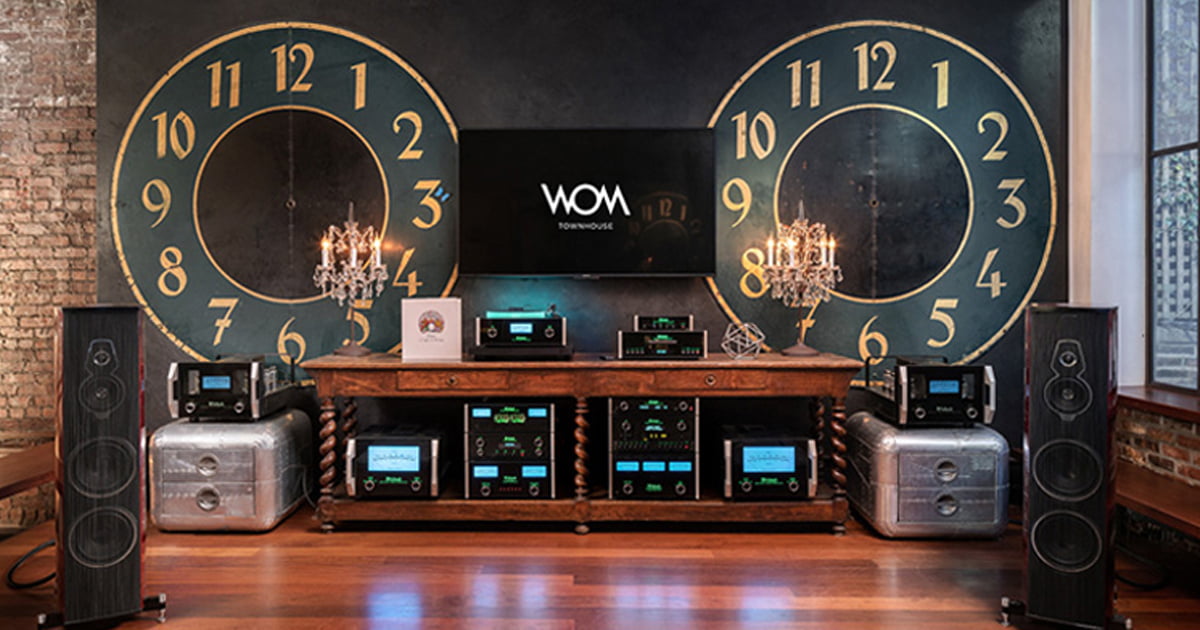It’s the time of year for saving money!
About three years ago I had all of my patio furniture stolen. That this happened at all was a shock, since I live in a very safe area of town and my development has historically had exceedingly low crime stats. I looked out the patio door one morning about 8:30 — furniture there. I left to run a few errands and returned home after about an hour. Looked out the patio door — furniture gone. There was a landscaping truck down the street that I’ve always suspected as the culprit but could never prove.
 Having my system stolen is not so much of a concern. The two most prominent things are the speakers and the turntable. At 64 inches tall and weighing in at 120 pounds each, the speakers present a certain challenge. The turntable, while not as large, weighs about 70 pounds, so it really is not smash-and-grab worthy. These facts don’t preclude the possibility of someone breaking into my home, so I have a security system replete with motion sensors, cameras, glass break monitors, door and window monitors, smoke detectors and all that. While certainly not totally immune from anything, I feel pretty good about theft. Besides, there’s insurance, right? Well, maybe.
Having my system stolen is not so much of a concern. The two most prominent things are the speakers and the turntable. At 64 inches tall and weighing in at 120 pounds each, the speakers present a certain challenge. The turntable, while not as large, weighs about 70 pounds, so it really is not smash-and-grab worthy. These facts don’t preclude the possibility of someone breaking into my home, so I have a security system replete with motion sensors, cameras, glass break monitors, door and window monitors, smoke detectors and all that. While certainly not totally immune from anything, I feel pretty good about theft. Besides, there’s insurance, right? Well, maybe.
Aside from theft, there remains the potential for damage due to fire, flood or natural disaster. I’ve lived in my home for quite some time so while fire is a possibility I’d say it is a remote one. Flood? Not likely, either, although a water pipe could burst, which would be a bad day. Natural disaster can come at anytime so the best one can do there is hope for the best.
Having insurance should be a no-brainer, but here I was with an expensive audio system and my insurance not up to par as far as the system was concerned. So I decided to look into the possibilities.
The simple and most obvious solution is just to increase the homeowners insurance. However much your system is worth, increase the coverage by that much. That seems really easy to do and is, I suspect, how most audiophiles cover their investment. But not me. I wanted more. I wanted the reference coverage for the reference system. So I decided to see what types of coverages were available.
A separate rider is a policy that appealed to me. I can just insure my system by component, and only my system. I called my agent and he told me he would let me know. He called back with a policy that protected my system against, well… everything on the planet. If I was carrying a component from here to there and dropped it, no problem — covered. If a comet struck Earth, before life went the way of the dinosaurs I’d get a check. Now that’s the one for me. How much you ask? SEVEN THOUSAND DOLLARS per year! Na, not for me. I looked at several other separate policies but none of them just seemed right.
There are those who will be thinking I’m being a little cheap. I can willingly invest the thousands that I have in a system and not invest a small portion of that for a yearly insurance policy. Makes no sense to me either. Then again, I just cannot force myself to buy razor blades at the grocery store. I’ll always opt for some discount place — even if the cost is about the same. Call me crazy in that way.
 Despite my efforts, I still found myself with inadequate coverage and feeling pretty stupid about it. I was convinced that I could find a policy that I liked and one I found affordable. I could, as a last resort, just increase the total coverage amount for my system. But that just didn’t seem like it was the right thing to do. I can see me with the insurance adjuster after some catastrophe when he asks, “Your stereo is worth how much? “After looking at several different options, I finally found the policy for me.
Despite my efforts, I still found myself with inadequate coverage and feeling pretty stupid about it. I was convinced that I could find a policy that I liked and one I found affordable. I could, as a last resort, just increase the total coverage amount for my system. But that just didn’t seem like it was the right thing to do. I can see me with the insurance adjuster after some catastrophe when he asks, “Your stereo is worth how much? “After looking at several different options, I finally found the policy for me.
I settled on a policy specific for my audio system. Oddly enough, the company came at the suggestion of an audio dealer who is also a friend. It was the company he was using and with whom was very satisfied. I called, got a separate policy for my system that protects it against theft and natural disaster and with the cost way below seven grand a year. I’d say this is just another way an audio dealer can help out audiophiles.
The moral of the story is making sure your system is insured. Take pictures of the components, record all the serial numbers, make copies of the receipts and keep them all in a safe place — like the bank. Be careful about who sees your system, especially service and repair people. We’d all like to think that everyone is mostly trustworthy, but the reality is that’s a foolish notion. Like my boss of many years ago used to say, “You don’t know what you don’t know.” Sage advice for all.





